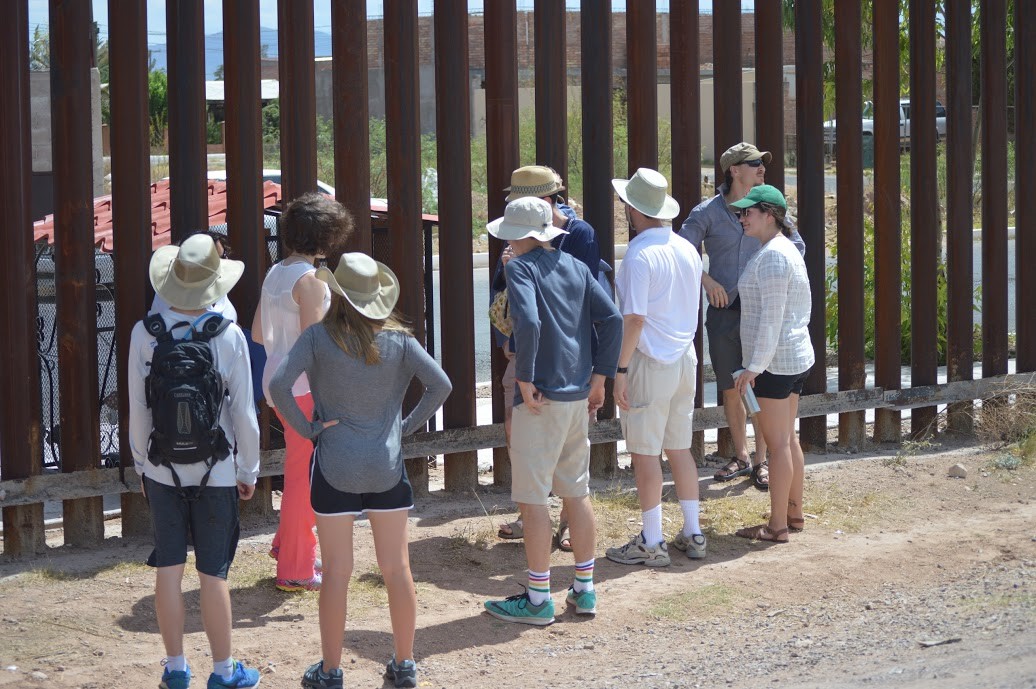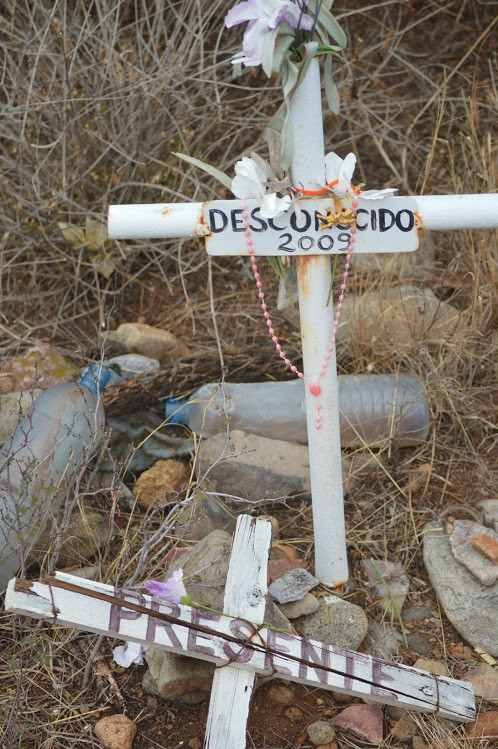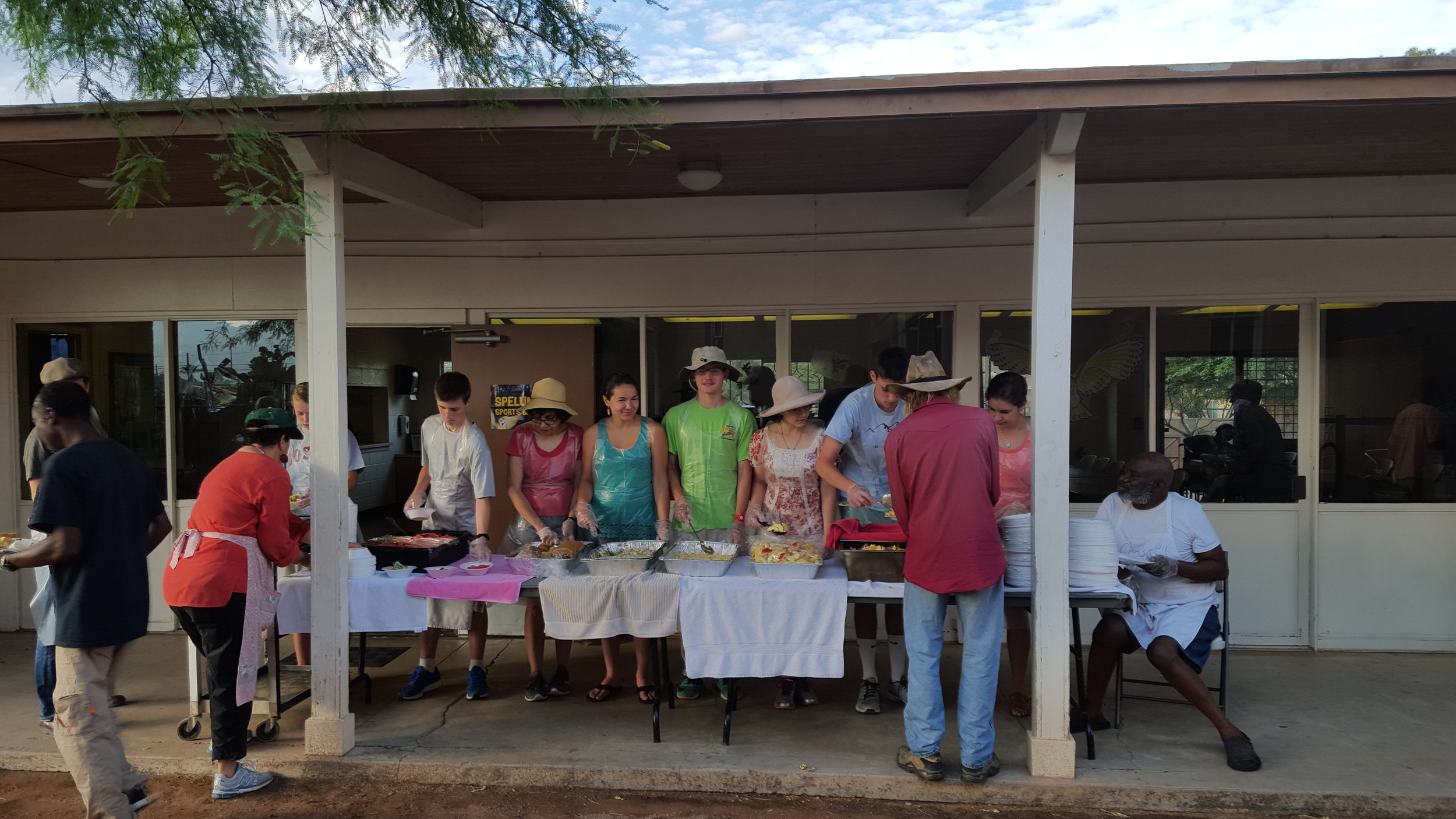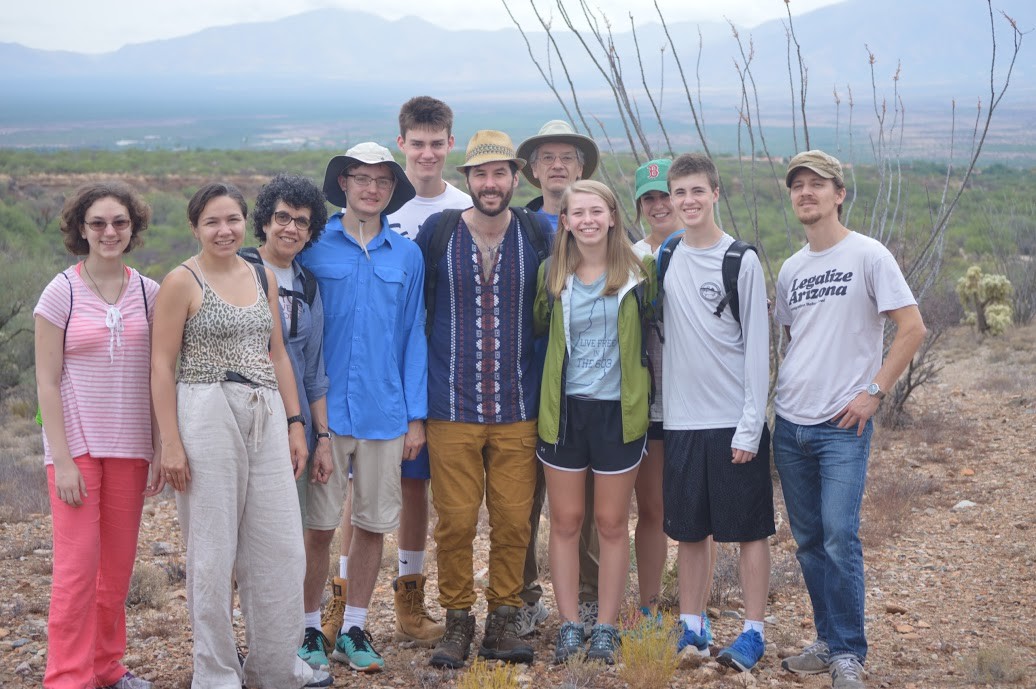Barrington group learns about life on U.S.-Mexico border
'I think everyone left with more questions than answers,' says Rev. Brendan Curran
Weeks after the trip, Rev. Brendan Curran was still trying to process all that he had seen.
The leader of the Barrington Congregational Church UCC and nine other locals had witnessed a world much …
This item is available in full to subscribers.
Please log in to continue |
Register to post eventsIf you'd like to post an event to our calendar, you can create a free account by clicking here. Note that free accounts do not have access to our subscriber-only content. |
Day pass subscribers
Are you a day pass subscriber who needs to log in? Click here to continue.
Barrington group learns about life on U.S.-Mexico border
'I think everyone left with more questions than answers,' says Rev. Brendan Curran
Weeks after the trip, Rev. Brendan Curran was still trying to process all that he had seen.
The leader of the Barrington Congregational Church UCC and nine other locals had witnessed a world much different than that of Barrington, a world where people risk their lives to cross an invisible line in order to make a better life for themselves and others.
Last month, Rev. Curran and the group from the church had traveled to Arizona to attend a Borderlinks program. There they had learned about life along the U.S.-Mexico border.
They had met with Samaritans who walk the border daily in search of people in need of help. They had met with members of Heal Our Borders, a group that meets at the border and prays for those who lost their lives while trying to immigrate into the United States. And they had met with People Helping People — a small group of individuals who monitor the actions of the Border Patrol and offer food and shelter to those crossing the border.
"I think everyone (on the trip) left with more questions than answers," said Rev. Curran. "I think we realized the immigration system is broken and inhumane."
Many of the people who participated in the mission trip shared their reflections during a recent church service in town.
"Listening to all the speakers and hearing about their struggles firsthand was really impactful, but even more moving was when we weren’t talking," wrote high school student and missionary Matt Zeleznik. "At the prayer vigil, placing the grave markers of immigrants who died crossing the desert alongside the road leading up to the border; calling out their individual names; sharing their pain and crying for them as if we had known them our entire lives; this was my most powerful moment."
Helen Ward, another of the missionaries, shared some of her frustrations with the current system.
"…our immigration policies are irrational, dishonest, and expensive," she wrote. "Our economy depends on the labor of undocumented immigrants. We are imprisoning large numbers of apprehended immigrants in private prisons. Your tax dollars are enriching lawyers and the private prison industry. Our southern border, which was a fairly casual place up until the early Nineties, is not a militarized zone. The border patrol has ballooned since 2001. Such rapid growth has meant the hiring of officers with poor training and credentials and limited accountability…"
Ms. Ward and the other missionaries spent the first day of their trip trying to acclimate to the desert environment. They also attended an orientation for the Borderlinks program, learning about the history of the border and immigration.
Day 2 included a worship service at a Catholic church, where a mariachi band provided the music for the Mass, and parishioners spoke entirely in Spanish.
"We were still in the US, but culturally, it's Mexican," said Rev. Curran.
There was also an educational workshop, where the missionaries learned about the legal challenges for those trying to immigrate to the United States. They discovered how certain decisions by the US government had impacted the lives of Mexicans.
"We can't complain about a problem we caused," said Rev. Curran.
The seven-day adventure also included a visit with Samaritans who walk the desert looking for people in trouble — those who may be sick or starving or injured. It is estimated that hundreds of people die each year while trying to cross the border.
"People think the immigrants are bringing drugs into the country, but the majority are fleeing poverty," said Rev. Curran. "They are looking for work and trying to send money home."
The missionaries also visited with a group called Frontera de Cristo, which is a presbyterian organization working with communities on both sides of the border. They met with Heal Our Borders and participated in a prayer vigil for those who lost their lives while trying to cross the border, and then helped with a desert walk and water drop, aiding the humanitarian group No More Deaths as it refilled water stops in the desert. The missionaries also had the chance to serve dinner to those living at a homeless shelter located near the border.
Will Short, a student at Barrington High School who participated in the trip, later wrote about the immigrants and the challenges they face.
"Fathers, mothers and children are forced to cross dangerous and desolate stretches of inhospitable desert," he wrote. "Once they get to America they work hard for little pay and are sometimes exploited and not paid at all. They lack many of the legal protections that many Americans take for granted."
Rev. Curran said it is time we all start viewing the immigrants differently.
"We have to learn to see them as children of God," he said. "We're all here together. We're interdependently linked with each other. There is a greater justice than the border."
Rev. Curran said some of the missionaries' work was based in charity and some was focused more on solidarity. He said he was very proud of the local young people who participated in the trip and the reflections they shared afterward.
"It's a real joy to see young people speaking with such conviction," he said. "It was interesting to see how adults were impacted as well."













